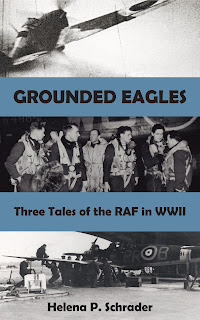Operation Santa Claus - Berlin 1948
Nowadays, "Operation Santa Claus" is associated with a USPS program to match letters to Santa with donors of gifts for kids. During the Russian blockade of Berlin 1948-1949, the children of Berlin didn't dream of writing to Santa Claus. The situation was too grim.
Santa came anyway.
December 1948 was a bleak time for the children of Berlin. The city was under siege. No food, clothing, medicines or coal could reach the city by land and everything from flour and milk to toilet paper and detergent had to be flown in on the small propeller planes of the day. The coal to run the power plants, factories and heat the ovens of the city also had to be flown in, as did diesel, gasoline and kerosene to run busses, lorries and cooking, lighting and heating.
As a result, public transport worked just twelve hours a day, and there was no gasoline or diesel to run private vehicles. The civilian population received electricity just two hours out of every twenty-four -- and sometimes that allocation (which rotated by section of the city) came in the middle of the night. Coal for heating ovens was so scarce that as the temperatures fell, people froze in their own homes and apartments.
Food was rationed, too, and much of it was dehydrated -- powdered eggs, powdered milk, powdered butter, powdered soup, powdered potatoes. As Christmas approached the Berliners made jokes about the Allies flying in Christmas trees -- powdered! (Just add water!)
Instead of powdered Christmas trees, the Allies flew is candy, chocolate, gum and Christmas presents for kids. Yet the most astonishing aspect of this "Operation Santa Claus" was that it was a private initiative undertaken initially by some of the Allied airmen themselves. Seeing the condition of the children and realizing just how bleak their lives were, Allied participants in Airlift started writing home and asking their friends, relatives and churches to send presents for the children of Berlin.
Their pleas did not fall on deaf ears. By early December some ten thousand Christmas parcels had been sent to the Allied bases in Western Germany for delivery to Berlin. The USAF organized Christmas parties at which these gifts could be distributed to Berlin children.
They hadn't seen so much food in years. They looked very thin and pale. We also gave up our chocolate rations. And at the end of each party they had a present and best of all an orange. Yes, an orange. Our food was pretty lousy, but we did our best for those kids." [Norman Hurst, RAF Operations Clerk, RAF Gatow, in a letter to the author 5 December 2005.]
The Russians had counted on "General Winter" stopping the Airlift just as "he" had stopped Napoleon and Hitler. General Winter was supposed to make the conditions in Berlin so unbearable that the Berliners would turn to the Russians, embracing Soviet rule for the sake of more food, heat and light. Instead, "General Winter" defected to the West by being mild, and the ordinary Americans and British working on the Airlift delivered the coup de grace to Russian ambition by winning the hearts of German children (and their parents) with chocolate, oranges and Christmas presents.
The Berlin Airlift is the subject of Bridge to Tomorrow, a trilogy of novels starting with Cold Peace.
1st Runner up for BOOK OF THE YEAR 2023 and winner of GOLD in the Category Wartime Fiction. Historical Fiction Company,
SILVER in the Category Political Thriller, Readers' Favorites
Berlin 1948. The economy is broken, the currency worthless, and the Russian bear is
hungry.
In the ruins of Hitler's capital, war heroes and resilient women struggle in
the post-war doldrums -- until they discover new purpose in defending Berlin's
freedom from Soviet tyranny. When a Russian fighter brings down a British
passenger plane, the world teeters on the brink of World War Three. The first
battle of the Cold War is about to begin.
View a video teaser at: https://www.youtube.com/watch?v=JTuE7m5InZM&t=5s
My novels about the RAF in WWII are intended as tributes to the men in the air and on the ground that made a victory against fascism in Europe possible.
Riding the icy, moonlit sky,
they took the war to Hitler.
Their chances of survival were less than fifty percent.
Their average age was 21.
This is the story of just one bomber pilot, his crew and the woman he loved.
It is intended as a tribute to them all.
Buy now on amazon or Barnes and Noble.
MORAL FIBRE is the WINNER OF A HEMINGWAY AWARD 2022 and was a FINALIST for the BOOK EXCELLENCE AWARD IN HISTORICAL FICTION.

"Where Eagles Never Flew" was the the winner of a Hemingway Award for 20th Century Wartime Fiction and a Maincrest Media Award for Military Fiction. Find out more at: https://crossseaspress.com/where-eagles-never-flew
For more information about all my aviation books visit: https://www.helenapschrader.com/aviation.html











Comments
Post a Comment